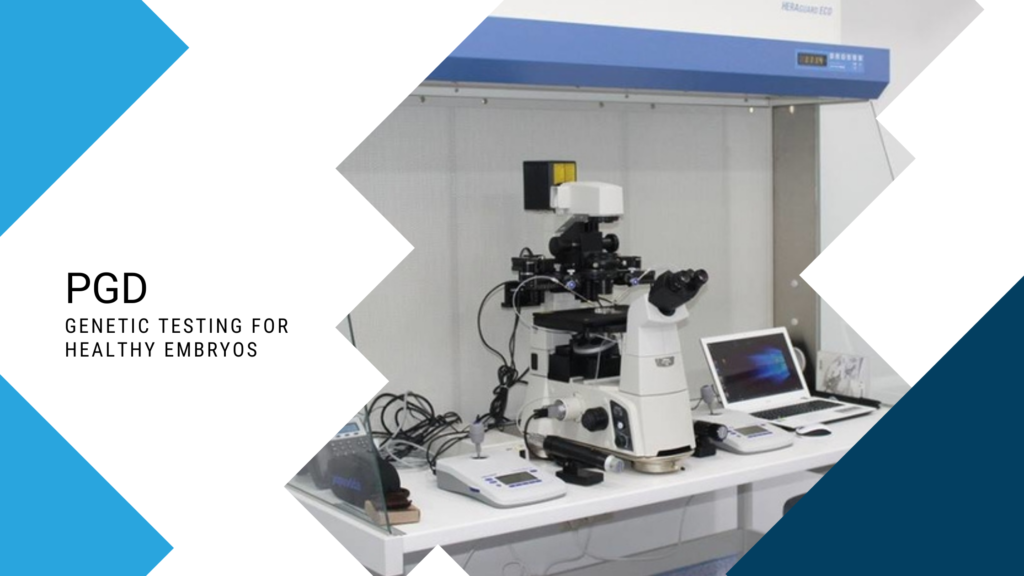
Preimplantation Genetic Diagnosis (PGD) is a reproductive technology procedure performed on embryos prior to implantation in order to detect genetic defects.
The test offers a comprehensive analysis of all 24 chromosome types: the two sex chromosomes (X and Y) and the 22 other non-sex chromosomes.
PGD is based upon the removal of cell(s) from each embryo on day 3 or 5 after egg retrieval.
What is the procedure for PGD in Georgia?
PGD is carried out as part of in vitro fertilization (IVF). After the ovarian stimulation phase has been completed, multiple eggs are collected from the ovaries and fertilized with the partner’s (or donor’s) sperm. Fertilized eggs (now called embryos) are cultured and monitored by the AtlasCARE embryologists for a few days.
Once an embryo reaches the cleavage stage (i.e., day three after fertilization), a single cell is extracted and analyzed in our specialized lab. DNA is screened under a powerful microscope to determine the presence of genetic abnormalities.
The PGD procedure may take up to a month. During this time, your embryos will be frozen and stored until the test results are available. Patients are then asked to come to our fertility clinic in Georgia to undergo embryo transfer. Twelve weeks after the procedure, a beta hCG blood test is carried out to confirm pregnancy.
When is PGD testing done?
Individuals and couples at risk of passing a genetic disease or condition on their child(ren) may benefit from PGD. These include:
- Women after the age of 35
- Carriers of sex-linked genetic disorders
- Carriers of single gene defects
- Women experiencing recurrent miscarriage
- Patients with a family history of genetic condition/disorder
- Gender selection
Which PGD methods does AtlasCARE offer?
There are 2 types of PGD — routine PGD and array CGH 24 sure.
Routine PGD
Routine PGD is a genetic testing procedure – test chromosomes 13, 18, and 21, which are the causes of almost 90% of all genetic-linked abnormalities such as down’s syndrome.
Array CGH
Array CGH 24 sure is also genetic testing done on day 5 by freezing the embryos as it is more detailed testing. It tests all chromosomes. We generally do this in unexplained miscarriages or deaths or if there is a problem in family history.